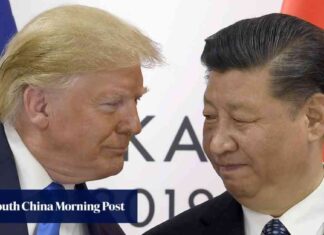Japanese Officials Condemn Russian Patrol Plane for Multiple Airspace Violations
Japanese Defence Minister Minoru Kihara has issued a strong condemnation of the Russian government following multiple airspace violations by a Russian patrol plane. The incident occurred over territorial waters north of Rebun Island in Hokkaido, where the Russian Il-38 patrol aircraft trespassed into Japanese airspace on three separate occasions. Kihara informed reporters about the violations on Monday, emphasizing the need for immediate action to prevent a recurrence of such provocative actions.
In response to the airspace violations, Japanese F-15 and F-35 fighter jets were deployed to intercept the Russian patrol plane. The Japanese fighter jets issued warnings to the Russian military over the radio before resorting to firing flares during the third incursion. Minister Kihara stated that diplomatic channels have been utilized to convey Japan’s concerns to the Russian government and emphasize the importance of respecting international boundaries.
This latest incident marks the first publicly announced airspace incursion by a Russian aircraft since June 2019, when a Tu-95 bomber entered Japanese airspace near the southern island of Okinawa and the Izu Islands south of Tokyo. Government spokesman Yoshimasa Hayashi refrained from speculating on the intent behind the Russian actions but highlighted the increased Russian military presence near Japan following the invasion of Ukraine.
Japan’s support for Ukraine in the face of Russian aggression has strained relations between Tokyo and Moscow. Japan has provided financial and materiel support to Kyiv and imposed sanctions on Russian individuals and organizations in response to the invasion of Ukraine. The Russian government, however, has remained silent on the air incursions, further escalating tensions between the two countries.
Territorial Disputes and Geopolitical Tensions
Japan has longstanding territorial disputes not only with Russia over the Kuril Islands but also with China and Taiwan over the remote Senkaku Islands in the East China Sea. The Senkaku Islands, known as the Diaoyu Islands in China and the Tiaoyutai Islands in Taiwan, have been a source of contention in the region, with both China and Japan asserting their sovereignty over the islands.
In August, Japan scrambled fighter jets in response to the first confirmed incursion by a Chinese military aircraft into its airspace, denouncing it as a serious violation of its sovereignty. The increasing military activities by both Russia and China near Japanese airspace have raised concerns about regional security and stability.
China’s growing alliance with Russia in the wake of the Ukraine conflict has further complicated the geopolitical landscape in the Asia-Pacific region. The joint naval drills conducted by Russian and Chinese warships in the Sea of Japan, described by Russian President Vladimir Putin as the largest of its kind in three decades, signal a deepening military cooperation between the two countries.
Security Threats and Strategic Cooperation
The military exercises between Russia and China are seen as a strategic move to enhance their ability to jointly address security threats in the region. The joint drills aim to strengthen the strategic partnership between Moscow and Beijing and demonstrate their readiness to counter any potential security challenges.
The evolving security dynamics in the Asia-Pacific region underscore the need for enhanced cooperation among regional powers to maintain peace and stability. Japan’s response to the recent airspace violations by Russian and Chinese military aircraft reflects its commitment to upholding international norms and safeguarding its territorial integrity.
As tensions escalate in the region due to increased military activities by major powers, including Russia and China, Japan remains vigilant in defending its airspace and territorial waters. The recent incidents serve as a stark reminder of the complex geopolitical realities facing Japan and its neighbors in the Asia-Pacific region.



























